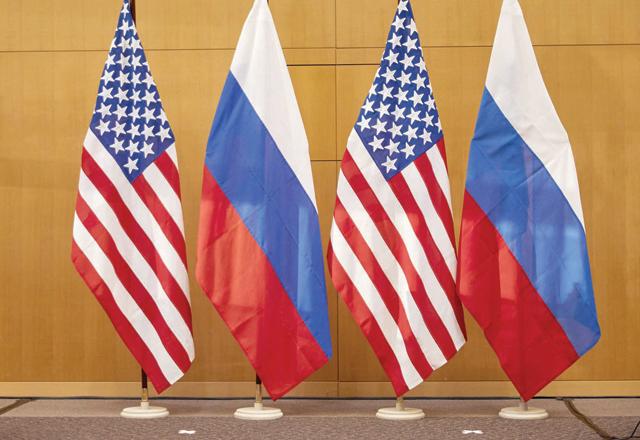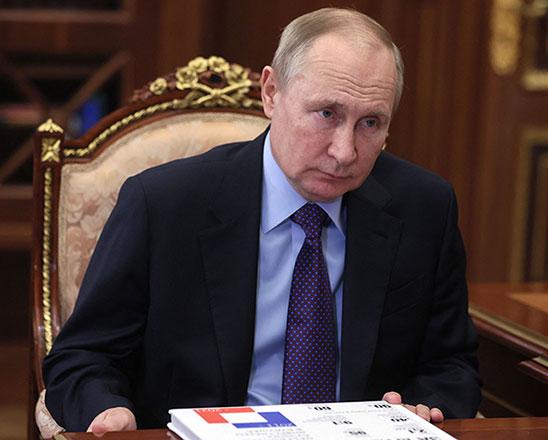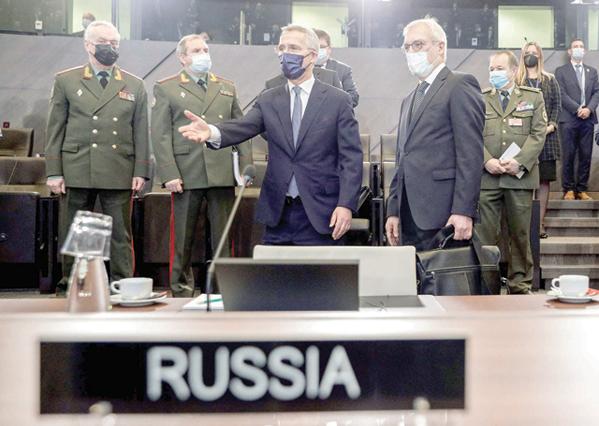You are here
Russia rules out concessions at Ukraine talks with US
By AFP - Jan 09,2022 - Last updated at Jan 09,2022
GENEVA — Russia ruled out Sunday any concession at talks with the United States on soaring tensions over Ukraine, as Moscow, facing strong pressure to pull back troops, seeks a wide-ranging new security arrangement with the West.
Russia's deputy foreign minister Sergei Ryabkov told Russian news agencies ahead of his talks in Geneva the Kremlin was "disappointed" with signals coming from Washington and from Brussels, where NATO and the European Union are based.
The high-level discussions kick off a week of diplomacy in which Russia will meet with NATO and the Organisation for Security and Cooperation in Europe (OSCE), as the United States tries to assure European allies they will not be sidelined.
Since late last year, Russia has amassed tens of thousands of troops at the Ukrainian border and demanded guarantees that NATO will not expand further eastward.
The Kremlin is insisting NATO must never grant membership to ex-Soviet Ukraine, which is pushing to join.
The United States, to be represented by Deputy Secretary of State Wendy Sherman, agreed to talks even though it made plain that many of Moscow’s proposals are non-starters.
Originally scheduled to start on Monday, Sherman is now due to have a working dinner with Ryabkov on Sunday evening, said a State Department spokesperson.
Russia’s foreign ministry posted footage of Ryabkov’s plane arriving in Geneva.
“We will not agree to any concession. That is completely excluded,” Ryabkov said before departing.
“We are disappointed with the signals coming in the last few days from Washington but also from Brussels.”
US Secretary of State Antony Blinken, dismissing Moscow’s demands as “gaslighting”, has insisted that talks will yield no progress so long as Russia has a “gun to Ukraine’s head”.
“We’re prepared to respond forcefully to further Russian aggression. But a diplomatic solution is still possible and preferable if Russia chooses it,” Blinken said Friday.
Russian President Vladimir Putin met his US counterpart Joe Biden in Geneva in June and agreed on regular “stability” talks between Sherman and Ryabkov.
‘Massive’ retaliation
In two phone calls to Putin, Biden has warned of severe consequences if Russia invades Ukraine.
Measures under consideration include sanctions on Putin’s inner circle, cancelling Russia’s controversial Nord Stream 2 pipeline to Germany or, in the most drastic scenario, severing Russia’s links to the world’s banking system.
A US official, speaking on condition of anonymity, warned that Washington would also send more troops to eastern NATO members such as Poland and the Baltic states if Russia invaded Ukraine.
Europeans have showed solidarity, with EU foreign policy chief Josep Borrell visiting the frontline in Ukraine, although some nations are expected to hesitate at the strongest measures.
“Whatever the solution, Europe has to be involved,” EU Commission chief Ursula von der Leyen said.
Russia insists it was deceived after the Cold War and understood that NATO would not expand.
Instead, the US-led alliance welcomed most of the former Warsaw Pact countries and the three Baltic nations that were under Soviet rule.
Russia has put intense pressure on Ukraine since 2014 after a revolution overthrew a government that had sided with the Kremlin against moving closer to Europe.
Russia seized the Crimean Peninsula and backs an insurgency in eastern Ukraine in which more than 13,000 people have died.
At a time when Russia is also intervening to shore up allies facing popular uprisings in Belarus and Kazakhstan, Moscow has insisted it wants concrete progress in talks with Washington.
Putin’s foreign policy adviser Yury Ushakov warned after the call with Biden that the United States would make a “colossal mistake” if it went ahead with sanctions.
‘Gigantic bluff’?
“It is very likely that we will encounter the reticence of our US and NATO colleagues to really perceive what we need,” Ryabkov said Sunday.
In spite “of the threats that are constantly formulated against us... we wil make no concession,” he said, adding it would “amount to acting against the interests of our seccurity”.
NATO chief Jens Stoltenberg, meeting foreign ministers of the alliance on Friday, said there remained real risks of a Russian invasion.
But John Herbst, a former US ambassador to Ukraine, described the Russian troop build-up as a “gigantic bluff” by Putin to seek a negotiated agreement.
“They are trying to see if the Biden administration or Europe will blink,” said Herbst, now at the Atlantic Council think tank.
“As long as the Biden administration remains at least as strong as it is now,” he said, “it probably is enough to keep Putin from striking large into Ukraine, but I don’t rule out something smaller.”
Matthew Rojansky, director of the Kennan Institute at the Woodrow Wilson International Centre for Scholars in Washington, said the Geneva talks were more about preventing the Ukraine crisis from accelerating than reaching a major deal.
Related Articles
GENEVA — Top US and Russian officials held crucial talks on Monday with tensions soaring over Ukraine and security demands from Moscow, but
MOSCOW — US President Joe Biden and his Russian counterpart Vladimir Putin emphasised the need for diplomatic solutions ahead of their lates
BRUSSELS — NATO and Russia confronted their stark divide over security in Europe on Wednesday, with the allies challenging President Vladimi














